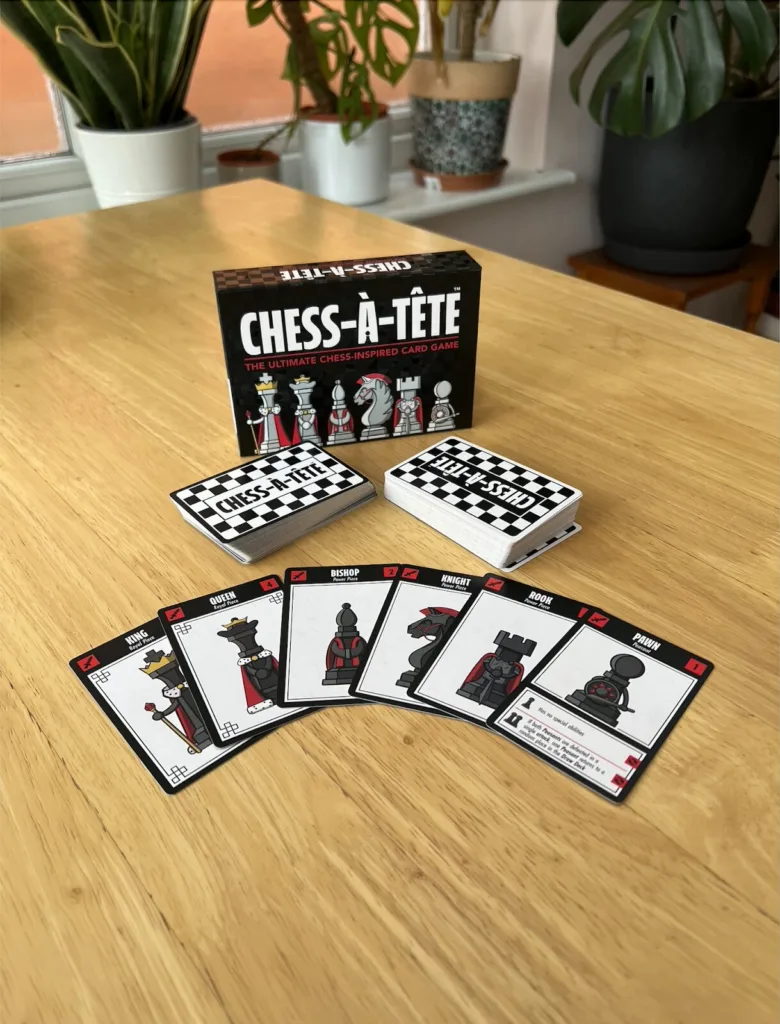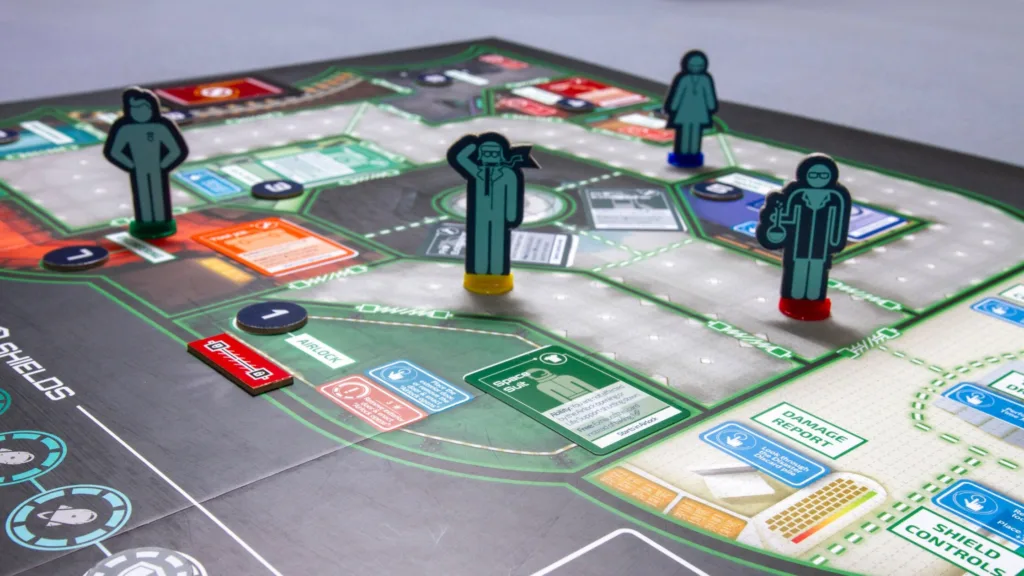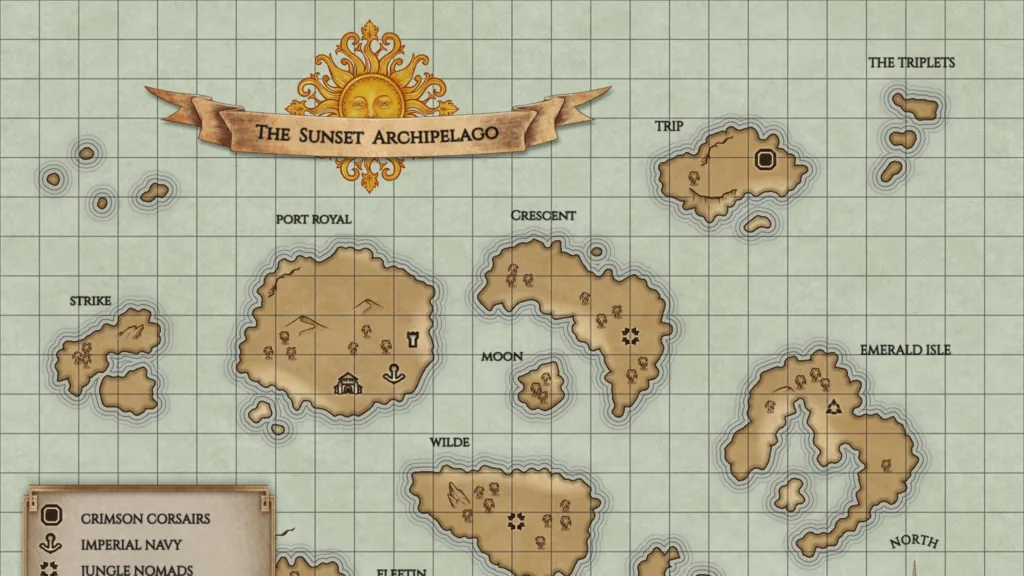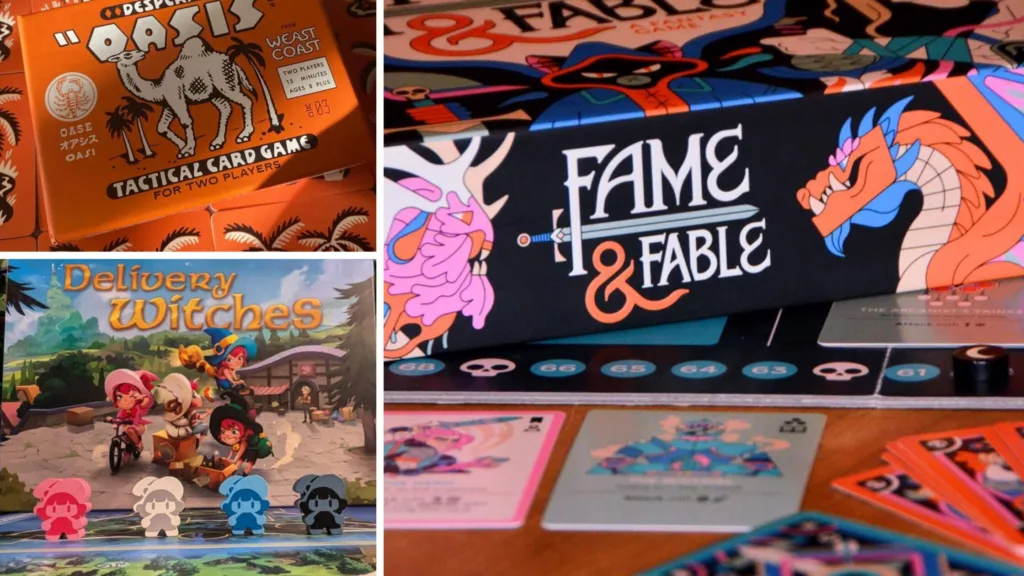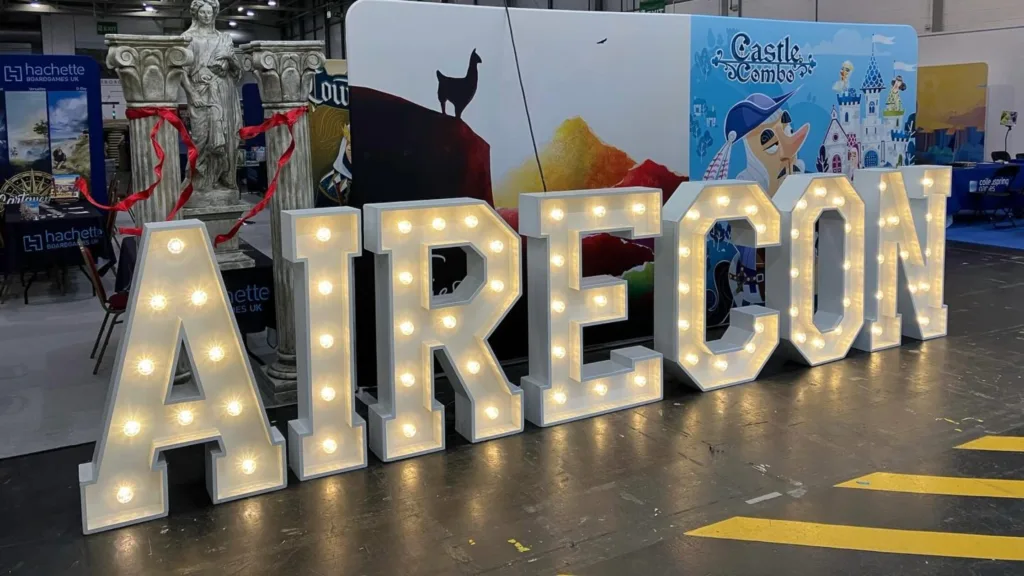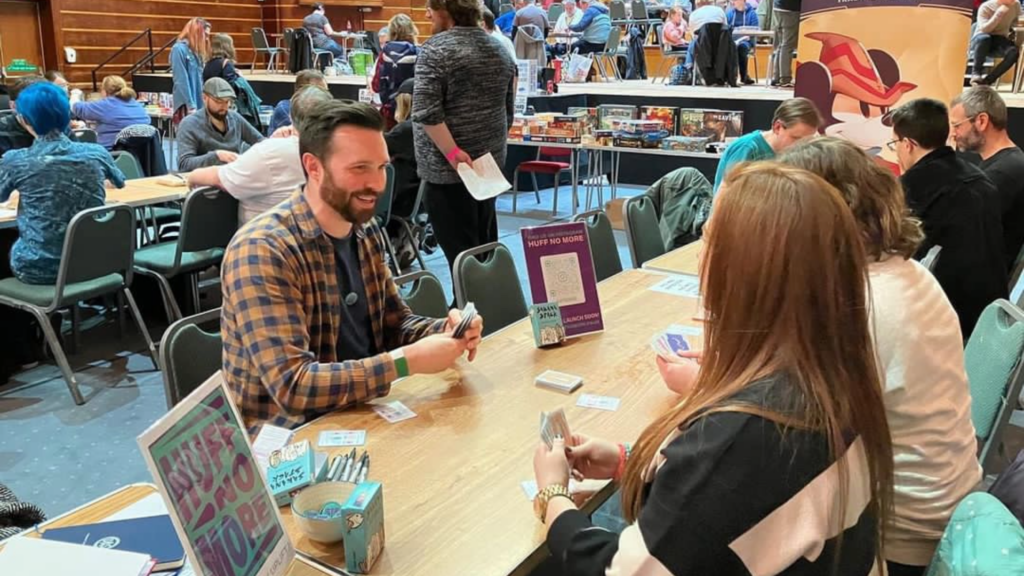Joe: Hey Benjie, welcome back to the blog, it’s been a while. For those who don’t know you, can we have an introduction.
Benjie: Hey Joe, thanks for having me back!
A quick bit about me. I’m a Welsh game designer, dancer and composer, living in Cardiff. I studied music at university and worked as a composer for many years mainly on tv shows, up until about two years ago, when I decided to take the plunge into board games. I’ve danced Lindy Hop for a while now too, and right around the same time I switched from composing for a job, I also started getting more dancing opportunities too. These days my time is split between running my board game publishing entity “Cosy Cub Games”, and teaching Lindy Hop locally and further afield.
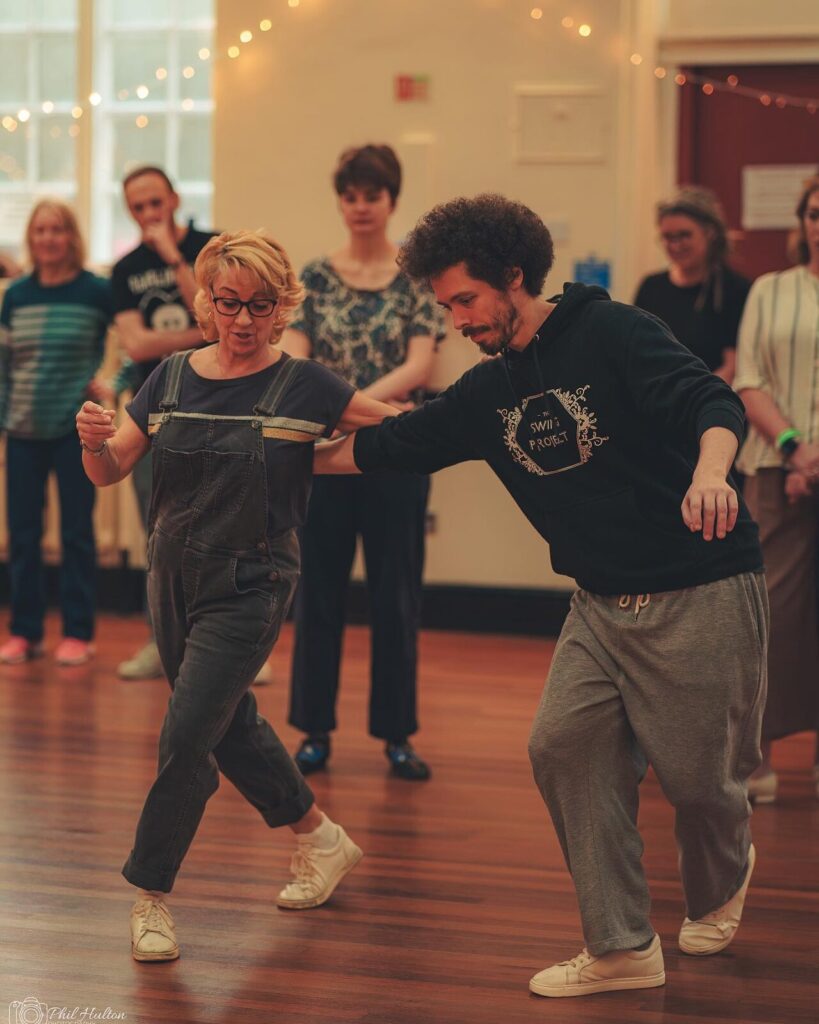
In May 2024 I ran my first crowdfunding campaign for “TENBY”, which successfully funded, and which I am now in the process of delivering to backers. I’m looking forward to more projects ahead, and to how I can figure out how I can pursue all of the interests in my life!
Joe: Thanks for the intro, you have quite the skillset! I love that you brought your skills in composition into the TENBY project – I’ve listened to the album and it’s lovely!
I’d like to take you back to your kickstarter for TENBY. You aced it, tripling your target with over 600 backers. For those of us about to start that process, I’d love to ask how you think you managed that level of success – do think there were any strategies that you used that help it to take off like it did?
Benjie: I’ve been lucky to be able to pursue a few different things, that’s for sure!
So far as strategies for crowdfunding goes, I think you would give me too much credit to say that I had a strategy and implemented it. Most of the time it felt more like being out at sea and clinging onto whatever is going to keep you afloat! But there were a few things that in retrospect turned out to be good instincts, and were indeed very helpful.
First I made sure to make some good quality prototypes and to send them out to as many content creators and reviewers as possible. I only sent copies to people who were willing to play the game for the joy of it, rather than content creators who offered services in return for payment. I’m sure there’s great value in that, but I just didn’t have the budget for it. I spent a long time engaging with those people, assembling feedback and implementing those changes into the game.
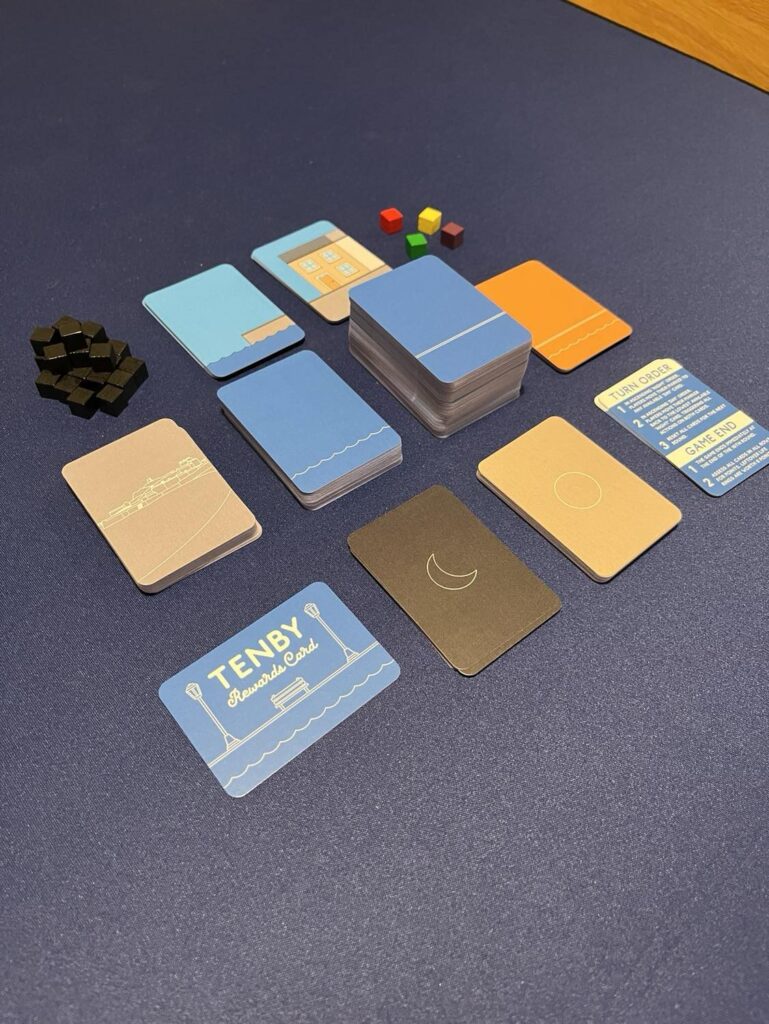
I made a second batch of prototypes and sent those out to the same people who played the first version, plus quite a few more, who were really happy to get to play a game that they helped to craft. I couldn’t have known this ahead of time, but those Instagrammers were really essential to the game reaching a wider audience ahead of the crowdfunding campaign’s launch.
I suppose there were two other things that I did. First was to spend a decent amount of effort and time on social media in the month leading up to the launch, as well as paying for boosted posts to reach specific audiences before and throughout the campaign. And second was to reach out to everyone that I have ever connected with in the past to ask them to back the campaign for £1 during the first hours of the campaign.
On reflection, my belief is that the campaign will succeed or fail based on the reach it initially has, and also on the quality of interaction in the first hours of the campaign. It does seem that if a campaign doesn’t reach its funding target within the first couple of days, then some aspect of crowd psychology kicks in and can stop the project in its tracks at that point.
Are you building up to a campaign sometime soon Joe? And do you have a different insight into this question?
Joe: That’s some brilliant insight. I’ll park part one of your question for a moment and have a stab at part 2. I’ve been watching so many kickstarters come and go over the last year, and I think your insight is spot on. I’d add something about being really careful about numbers and expectations. You need a set of quality prelaunch backers or emails. And quality means for me that you’re confident that they will convert to a sale. That comes down to how you got those people in the first place. I worry that many of the ‘write down your email and you’ll win a prize’ email gaining strategies are doomed from the start.
As for part 1, probably not. I’ve also seen enough of the other side of kickstarter for me to want to explore the pitch-to-a-publisher route and see how that goes. It’s not the successfully funding bit that scares me off, it’s the what comes next that gives me the worries!
As you’re nearly through that second part, what’s been your experience post-funding?
Benjie: I absolutely feel you. The “what comes next” is terrifying! I’ve had a great group of people around me who have not allowed me to become too bogged down in the unknown, which has really helped. There is so much to learn, so many small pieces of information that you wouldn’t even think to need to know ahead of time. And yes, in some ways that’s overwhelming, but so long as you take one thing at a time, it’s quite manageable. Always fun? Not necessarily, no, but ultimately very rewarding.
I would say my experience post-funding has been very mixed. As this is a sample size of one, I don’t think I can give a fair account of the definitive post-funding experience, however I can say that I had probably more downs than ups, and that keeping my mood high through it all has been a struggle. I made mistakes, I tried to own them, I tried to make up for them as best I could, I probably tried too hard! I also had bad luck with the manufacturer I worked with, having to change project managers in the middle of the project, which ended up being a good thing, however no doubt certain bits of information weren’t passed on, which led to complications and delays further down the line.
I’ve grappled a lot in the past year with the idea of productivity, and how much I’ve done or not done.
I’ve grappled a lot in the past year with the idea of productivity, and how much I’ve done or not done. Looking ahead, it feels as though in order to make this career work (in this way), I would need to produce a decent sized game every eighteen months or so, or make a couple of smaller games every year. In theory this doesn’t sound like too much, however the management of the crowdfunding, the marketing, the fulfilment, and everything else that I discovered that goes along with that, I can see would pile up quite quickly. Instead of being a creator, one could quite easily end up being a full-time administrator with part-time creating duties. Of course, there are ways around this, including the hiring of short term contractors for specific tasks (I’m keen at this stage to not be responsible for other people’s livelihoods!), however this would again be a slightly terrifying unknown.
Perhaps one of the best lessons that I am learning from this experience is how to set the expectations of people en masse. I am naturally a good one-on-one person, naturally empathetic, and as my partner jokes “Benjie doesn’t do small talk, he wants to know your hopes and fears”. Great for some things, less good for presenting information to a large group of people online. I can be proud that I was honest, and that I communicated the bad news as and when it came up, but what I’m not good at is shouting about the good news, and the quality of the product that the backers are going to get. I’m not used to saying “look at this awesome thing I’ve done”, much less communicating that to a lot of people all at once! But engaging with new experiences is never about just doing the things you’ve always done, it’s about learning how to do all the things you don’t do, and how to become good at those things, and importantly, how to contextualise those new skills in you in such a way that they compliment your existing personality, rather than battling against it.
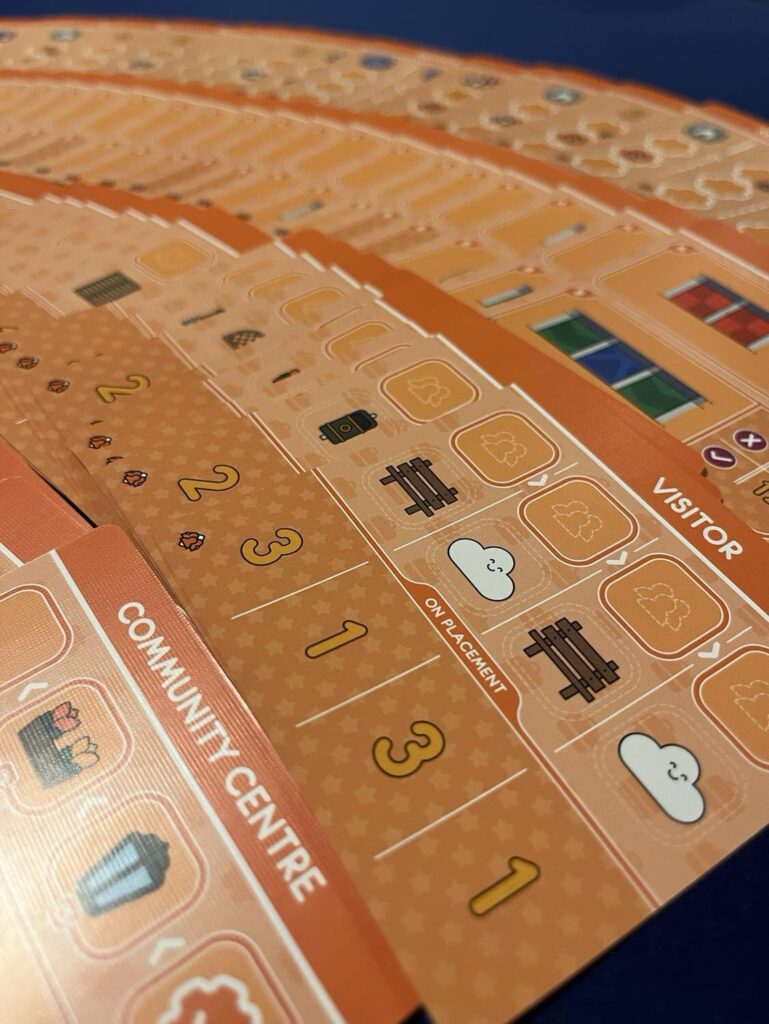
Perhaps that’s a little philosophical, so to give a concrete example: I decided to create an expansion for the game, which would be the final stretch goal unlock. This would only be made possible due to the extra funding available in the total pledged amount, and I made the choice to offer this expansion to backers at cost. At cost means that the product is sold at the amount that it cost to make, or in other words without any markup. I was blown away that the campaign reached this final stretch goal, and very happily began to finalise the files for the expansion. However, in the months after funding, some people complained that the cost of the base game was too high, that there wasn’t enough content to justify the cost.
For reference, there are more cards in TENBY (£33 inc. VAT on kickstarter with only 1000 copies printed at a high production cost) than the base game of Dominion (which sells for around £35 and prints many thousands of copies a year at a low production cost) and, in addition, TENBY also provides a lot of extra rulesets to use the content in different ways, including a dedicated solo variant. I didn’t do a good enough job of shouting about how great the value was that you were getting for your pledge; however, I didn’t arrive at this conclusion immediately. Instead I experienced a lot of days of very low mood, feeling that I had failed my backers. I forgot entirely about the value that backers were getting from the expansion, that they would be getting over 100 cards and over 100 tokens in the expansion over five different modules to use with the base game. Can you find me an example anywhere on earth of an expansion of this size selling for £5? But I didn’t shout about it, and didn’t present the information in such a way as to help people to understand what value they were going to get for their money. I’m not sure I can say “lesson learned” yet, but it’s certainly something now at the front of my mind.
Is there anything specific about the post-funding experience that you’d like to ask me about?
Joe: Wow, thank you for your honesty. I think it’s so important that those of us thinking about taking those first steps into crowdfunding get the chance to peek behind the curtain and understand what it really means to successfully fund.
From my perspective as a backer of TENBY, I’ve been only impressed with the care that you’ve taken over relations with the community you’ve built.
You raise a really interesting point about how you feasibly make a career out of board games design. I assume some of that comes from you building a name for yourself; when TENBY hits doorsteps and people love playing it, that group will be more switched on for your next seaside-town themed game (I assume that’s going to be your genre from now on, right?).
If you’re keen to, what do you think your next steps will be? Are you looking to make this your full-time job, and if so, how are you planning on surmounting the challenges you outlined above?
Benjie: I’m glad you think I’ve done a good job with the community! That means a lot to me. I’m keen to make sure that people feel taken care of, and that they don’t feel that I’m taking advantage of their support. In general, the board gaming community is wonderful, open and honest. I couldn’t ask for more, and want to reflect those same qualities right back to the community.
A TENBY follow up! Ha, we’ll see. Certainly brand building is important, but again asking me about the intricacies of that would be like asking a rubber duck about swimming. It’s sort of doing it, but does it really know what it’s doing?
On the other questions, I think it’s really important to know what it is that you want from the process. For me, this project was a test, an exploration of what might be possible, and as such I could frame decisions made around the campaign and fulfilment with this in mind. The information that I wanted from running the campaign, and fulfilling it, was to understand if I would have the desire to do this long term. I’m in a lucky enough position in my life to have been able to do this, and I’m very grateful for that. Yes, I really wanted it to work out, and I am overjoyed that the project was funded well, but the stakes were also low, or in other words, my livelihood did not depend on it.
Certainly brand building is important, but again asking me about the intricacies of that would be like asking a rubber duck about swimming.
In this framing of the project as a test, so long as I didn’t lose money on the project, I would be very happy. And this led to a certain set of decisions that perhaps wouldn’t be available to me had I been looking to turn a profit from it. The campaign initially raised £16k, rising to a total of around £22k after collecting shipping and taxes (all of which is passed on to a fulfilment company or taxes paid on). After paying for manufacturing, freight, and everything else along the way (safety testing, accountancy, GDPR, barcodes, and a ton of other stuff!), there’s little left to compensate me for the thousands of hours I spent working on the project. However, as I said, this was a test, and was not intended to compensate me, only to balance the books on the income and the outgoings.
When looking ahead to future projects, and thinking about feasibility of income, there are definitely factors that greatly affect decision making right from a project’s conception. It’s odd to think that a component’s size or material should be considered at the same time as wondering what the core mechanisms of a game might be; however, I don’t see this as commodifying the process, rather just being realistic and using the experience gained to understand what the potential margins might be for a given game. This is information that I just think is impossible to have even a small window into the first time round, certainly I’m not sure I could have really appreciated the process without having experienced it first, and it also leads to some interesting findings.

To answer your last question, I’m not sure if I’m looking to make this my full-time occupation. Certainly I want to explore more game projects, but I am also a keen dancer, and don’t want to entirely abandon my music career. Ideally I would be able to continue all of these in some form, perhaps in parallel, or more likely focusing on one for a few years, then on another for the next, etc. I can’t help but want to do it all, and I’m determined to find a way! But it’s a real gift. If I could do just one of these options for the rest of my working life, then I’d be very happy. To be able to do multiple, and to be able to do them well, would be simply wonderful.
How about you? What are your next steps towards the publishing route?
Joe: Your experience of the process and the way that you’re taking so much of it as a learning experience is a valuable way of approaching so much of life. Thank you for sharing it. It helps me realise that I don’t have to define myself as this, that or the other early on. I can explore for a bit, take in the sights, and work out what fits and what doesn’t. Thank you.
To answer your question. Games keep falling out of my unconscious mind, and once they appear I am driven to move each forward to a playable prototype (and further), but holding on to one long enough to get it to a crowdfunder, and then taking on board everything that entails is too much at the moment.
With that in mind, I’m about to change my board games design relationship status for ‘Ready to Kickstart’ to ‘Seeking publisher’. I think that’s the journey I’m going to explore in more detail this year. Many members of the community have wonderful insight into this other approach so (with their help) I’ll be learning from them and taking some tentative steps forward.
I’m also not too worried about making my games real and on people’s shelves; I’m loving carving out a role (this blog) that allows me to document the journeys and experiences of other creators in this space. I’ll settle into this space and see what I can make of it, and who I can help.
Benjie: I’m really excited to see where this journey takes you. Hopefully the next time we talk, we’ll both have some more wisdom to share!
You want insight – this blog delivers it! Thank you to Benjie for his candour, there’s some much to learn here that you might want to bookmark this page. You can find Benjie on Instagram, and Cosy Cub Games here. You can also read the previous discussion with Benjie about getting ready for a kickstarter here.

